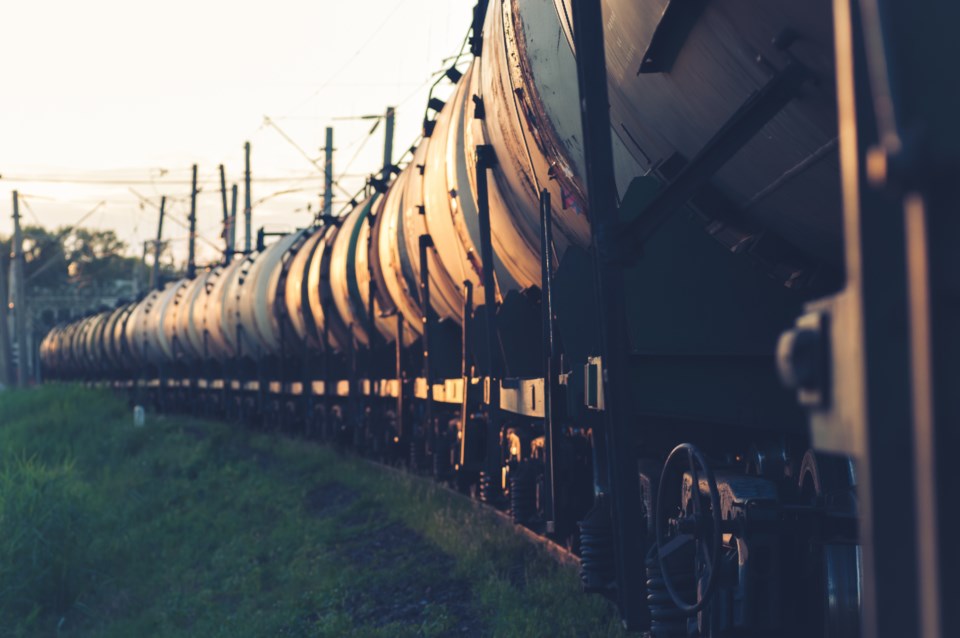They hear that train a comin', It's rollin' 'round the bend.
In rail towns throughout the B.C. Interior, it's an unwanted reminder that danger lurks – and as the prospect of more oil moved to port on train tracks, that danger is increasing.
"There are several things wrong with this," says Kamloops mayor Ken Christian. For him, it’s a matter of common sense and safety.
"It just baffles me how the environmental movement could be supporting not having a pipeline."
In September, an estimated 270,000 barrels of oil rolled through Kamloops adjacent to the Thompson River, which flows into the Fraser River. Christian also points out that while his city flirts with oil train disaster, pipeline opponents fail to realize that moving oil by train "produces way more greenhouse gases than a pipeline ever will."
It's the other side of the story surrounding Canada's pipeline debate. In the face of both legal and political delays surrounding the proposed TransMountain pipeline twinning between Edmonton and Burnaby, Alberta premier Rachel Notley has laid down the gauntlet.
She plans to purchase enough railway tankers to transport more than 120,000 barrels of Alberta crude per day in order to relieve the economic pressures facing her province’s number one industry. To quote Notley, "Alberta's oil is going to flow one way or another – if not by pipeline, then rail or truck."
North of Kamloops, the mayor of Valemount is in full agreement with the pro-pipeline argument. Owen Thorgerson says while his community holds its breath with 28 trains rumbling through town each and every day, Rachel Notley's plan could see that number increase to 30. Valemount is on the CN Rail mainline tracks to both the Port of Vancouver and the Port of Prince Rupert.
Thorgerson reports that while he and his fellow citizens don't like to think of the safety and environmental risks, he also contends that the greater the delay in building a pipeline, the greater the risk of another tragedy like the 2013 Lac Megantic disaster that claimed 47 lives.
While both CN and CP Rail are hesitant to confirm how much oil they are transporting these days, National Energy Board statistics points to an alarming increase.
The NEB notes that while 9,375 barrels of oil were transported by train in January of 2012, by September 2018 it was just short of 270,000 barrels.
Few will argue that more trains won't mean more derailments.
"It's location, location, location," says Thorgerson, “what I think the environmental movement is missing is the strong public support for the lower risk option."
"The Port of Vancouver isn't Vancouver's port. It's British Columbia's port and in fact more like Western Canada's port,” says Christian. “What I find offensive is this notion that people at the outlet end of the system can control what they feel is an acceptable commodity."
Christian also laments that while protestors scream and yell at the prospect of one extra tanker a day leaving Vancouver, they are mostly mute on the danger associated with oil trains rolling along critical eco-systems such as the Thompson and Fraser Rivers.
Yes, Interior communities "hear that train a comin'. But what they're really afraid of is a "ring of fire."
Bob Price is a veteran B.C. broadcaster who anchored the morning news on CHNL radio in Kamloops for the past 30 years. Bob is also a past Webster Award winner whose previous stops included Vancouver and Calgary.



